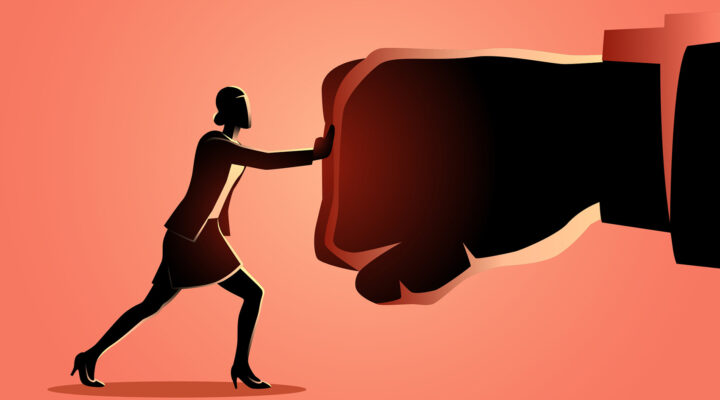What are we to feel and to think in these dystopian times when our nation is moving backward on so many issues of human dignity, equity and justice?
I feel defeated. Exhausted. Grieved. Aggrieved. Or, as one friend put it, I have no (“cares”) left to give.
My friend and writing partner Grace Ji-Sun Kim taught me about the Korean concept of han. Han is the deep and pervasive anguish that results from unresolved injustice.

Susan Shaw
I think han captures perfectly the angst, anger, dejection and deep sadness of this moment for marginalized and minoritized people, for progressives, for anyone who cares about justice.
The leaked draft of Justice Samuel Alito’s rejection of the 1973 Roe v. Wade decision that acknowledged women’s right to bodily integrity and reproductive choice capped a first quarter of 2022 that has seen attacks on teachers, libraries, professors, Blacks, indigenous people, persons of color and LGBTQ people, and women of all kinds.
We now live under minority rule, and, with Republican gerrymandering and tampering with voting rights and reporting, we likely will experience greater intrusions into democratic processes and greater likelihood of state and federal legislative bodies that do not represent the majority of Americans.
Recent research has found that when intolerant white people fear democracy will benefit minoritized people, they are willing to accept authoritarianism as a bulwark to defend white supremacy.
“When intolerant white people fear democracy will benefit minoritized people, they are willing to accept authoritarianism as a bulwark to defend white supremacy.”
The war in Ukraine reminds us that murderous dictators still commit war crimes, and the world’s tepid response underlines how little those with political power truly care about the suffering of others.
So partisan is the political divide in the U.S. that many on the right have embraced Putin simply because the left repudiates his barbaric actions in Ukraine. Despite the nightly images of death and dislocation of people, just like ourselves, world leaders cower behind their fear of losing political power or Russian oil.
If we are not experiencing han, to rephrase the saying, we’re not paying attention.
Han is not resolved by trite phrases about hope in God or the sweet by and by. Han is a spiritual dimension rooted in material realities. We are not just sad or angry or frustrated; we are oppressed by forces of racism, misogyny, homophobia, transphobia, classism, ableism, ageism and xenophobia through social institutions like law, government, education, medicine, business and the church. We are made poor, traumatized, second-class citizens, prisoners, subordinates and corpses. We are denied rights; we are subjected to discrimination, mistreatment, and violence; we are killed.
Han is not resolved by simply turning away from the political struggle in favor of piety. Rather our piety must be used in service of our political struggle.
“Our piety must be used in service of our political struggle.”
Our vote is a prayer. Taking a knee is our kneeling. Raising our voices in protest is our hymn.
Han-pu-ri, the releasing of han, requires a person must speak and be heard; injustice must be named; and steps must be taken to change the situation causing han.
In Korea, a shaman typically conducts the han-pu-ri that frees and restores the individual and community suffering from han. In minjung theology, a Korean liberation theology, Jesus is a shaman who heals and restores.
This Jesus, however, is no stained-glass Savior removed from the material realities of struggle. This is the Jesus who struggled against oppressors who kept people poor, colonized and subjugated, the Jesus who went to the Cross, not as a substitution to satisfy an angry God, but as a result of his decision to side with the poor and marginalized. This Jesus heals our han through his revolutionary example that empowers us to stay in the struggle as he did, to do what is right rather than what is convenient, to turn away from power-over in favor of love.
We release our han by following this Jesus. Our piety becomes our radical action in the world to oppose all oppression and to usher in the beloved community.
Faith is trusting the possibility of the beloved community, in the face of han, even though we may never live to see it. Right now, we are defeated, and the near future looks bleak. We are enveloped in han. So we must seek the han-pu-ri of a faith that helps us stay engaged in the struggle, knowing that we shall overcome someday.
Susan M. Shaw is professor of women, gender and sexuality studies at Oregon State University in Corvallis, Ore. She also is an ordained Baptist minister and holds master’s and doctoral degrees from Southern Baptist Theological Seminary. Her most recent book is Intersectional Theology: An Introductory Guide, co-authored with Grace Ji-Sun Kim.
Related articles:
‘Victimization’ and injustice: Why the new film, ‘Harriet,’ evoked anger in me | Opinion by Timothy Peoples
Beware when ‘law and order’ is cover for lawlessness and disorder | Opinion by Preston Clegg
Right now, we need angry Jesus | Opinion by Laura Mayo


